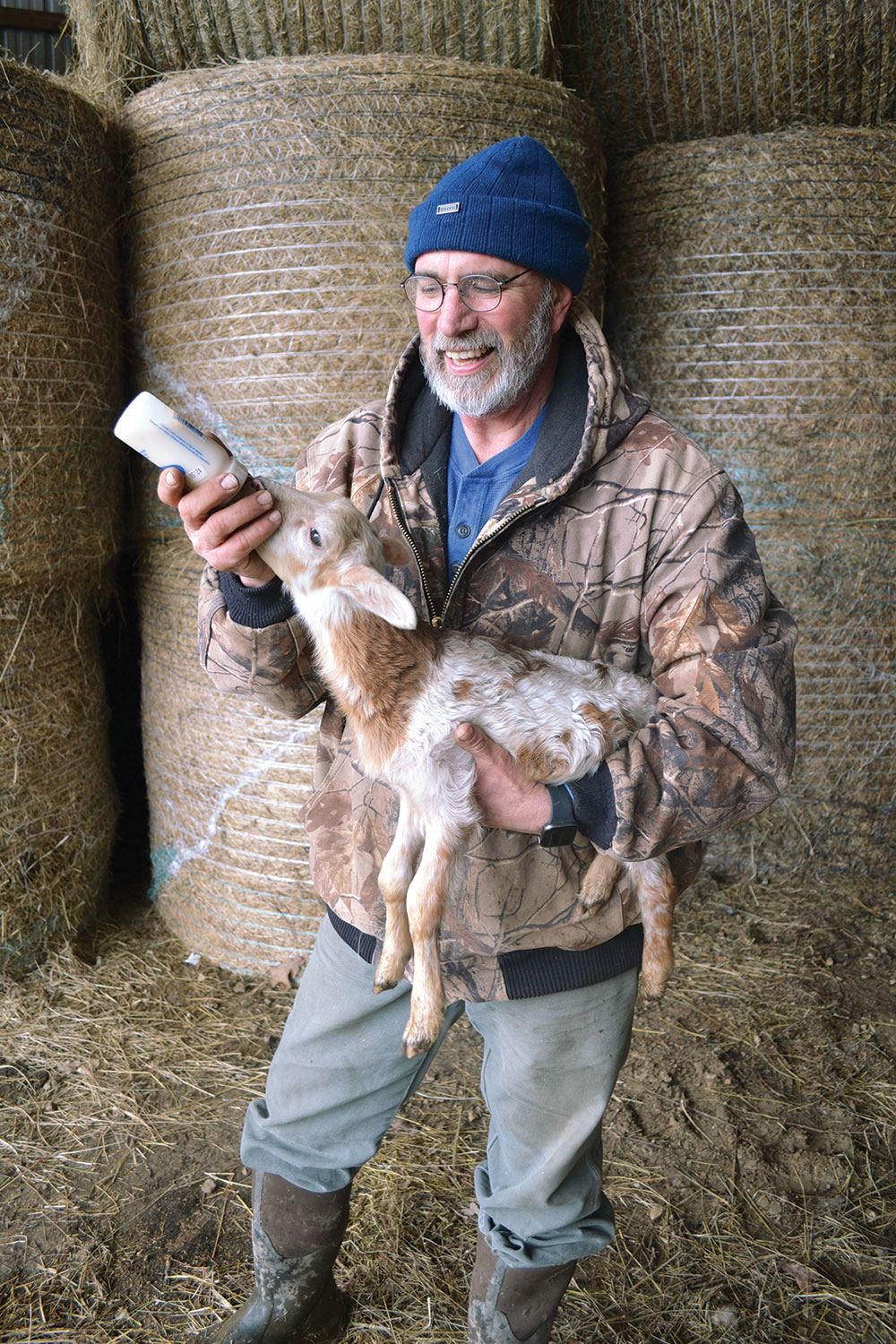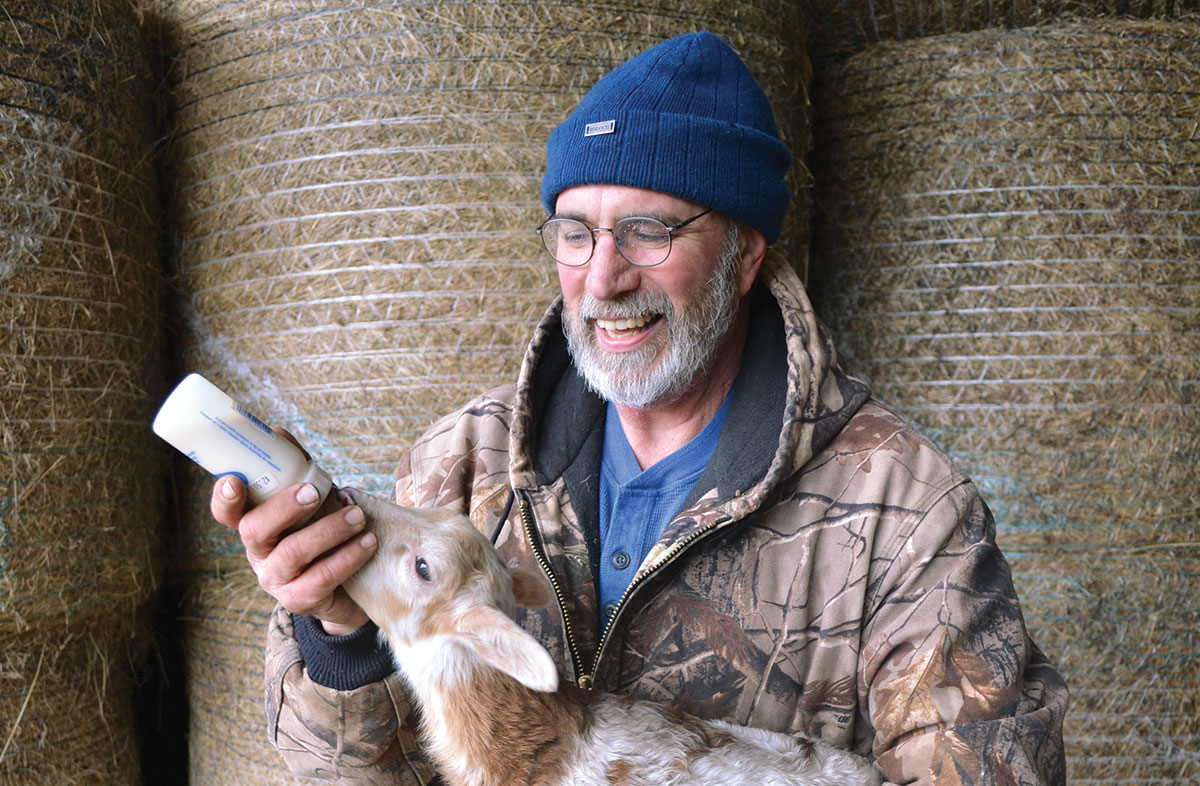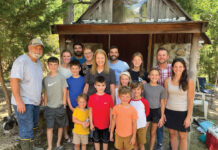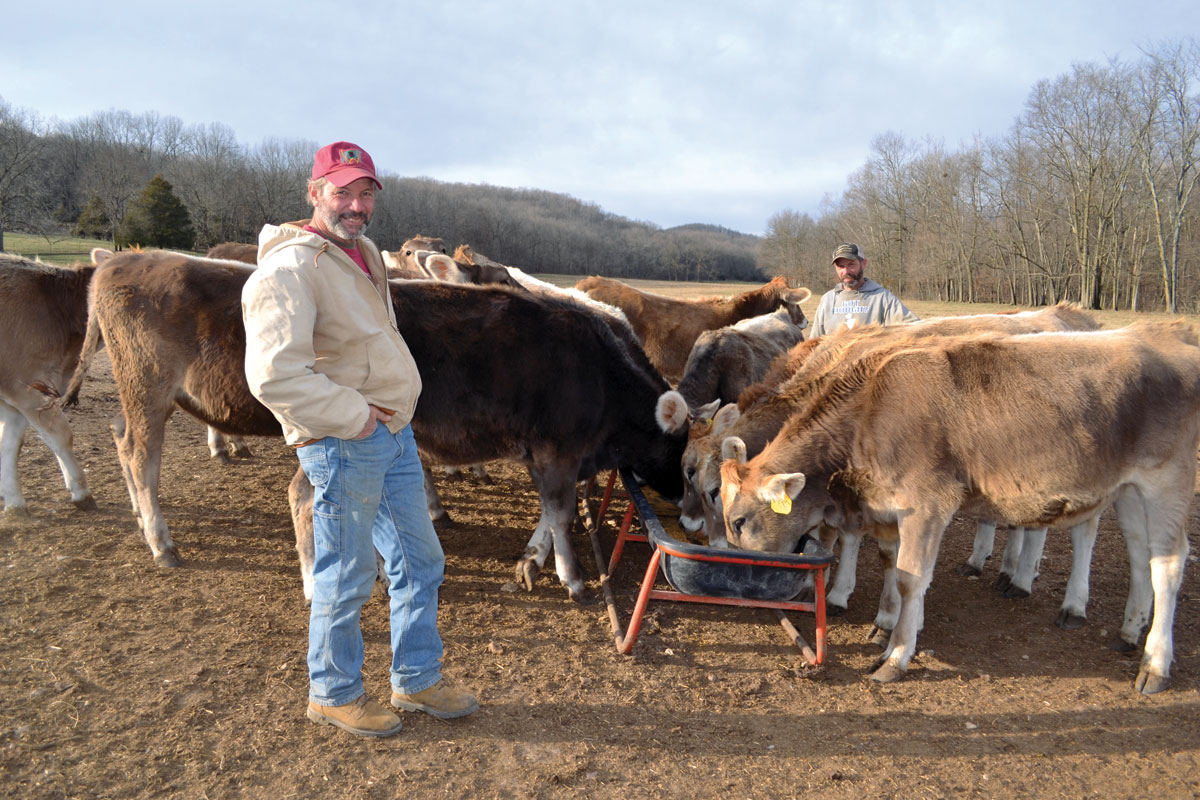 After a career in the military and the medical field, Richard Jones is at home on his farm
After a career in the military and the medical field, Richard Jones is at home on his farm
Growing up in a military family, Richard Jones always longed for the opportunity to raise his own animals.
In his career, he followed in his father’s footsteps, working in health care, serving most of that time in ERs, ICU and critical care as an Air Force nurse corps officer. At one point, he worked at Scott Air Force Base, outside St. Louis, Mo., and also spent almost three years, working at the Phelps Regional Health Center. And during that time, the Ozarks made an unforgettable impression on Richard. Nine years ago, he retired and along with his wife, April, who is originally from Mississippi and still works for a large, national pharmaceutical company, he moved to rural Phelps County, Mo.
“I travel for a living,” April explained. “But what really impresses me is that Richard gets up every day and comes out here and works all day long, no matter the weather, with the cows, the sheep, horses and poultry.”
They currently have 13 cow/calf pairs of crossbred Angus, black baldies, and 25 Katahdin ewes with approximately 20 lambs.
Richard is the first to admit he had a lot to learn and has made mistakes, but as a result he has acquired a great deal of valuable knowledge.
“As a nurse, I have books for everything. In farming and ranching, I’ve read so much about the cattle and the sheep, the markets and the other related business that goes along with all of this. Most of my neighbors are multi-generational cattle people and have done things the same way for years. I had to learn it all from scratch and that has included attending classes such as grazing school.”
Richard has 30 of his 40 acres in pastureland, which he has divided into six paddocks for rotational grazing.
“First the cattle graze, then the sheep and after that, the horses. We have two horses and a couple of small donkeys as well,” he added. “Most of my pasture is fescue with some mid-summer and fall grasses mixed in during the season. I have some red and white clover and some of the good Lespedeza grasses. In rotating the cattle, I try to leave a paddock empty four to six weeks. The water is my main limiting factor and that is dependent on the rain and the heat in the summer. For the most part, I try to rotate the cattle on a weekly basis. It might run a little longer in the heat of the summer.
“When we first bought the place, we spent three years going back and forth between here and Florida. I paid somebody else to brush hog it but it looked like a forest as it probably sat empty a year before we bought it. I’ve spent the years reclaiming the pasture we have now, from the honey locust trees and other scrub.”
Dr. Justin Berger, a local veterinarian with the Animal Health Center in Rolla has been a tremendous help to Richard and April as they have learned the agriculture trade from the ground up.
“Dr. Berger has allowed me to work cattle with him on a number of his visits to area farms and as a retired nurse, I find much of that work to be really interesting,” Richard said. “It’s one more way I’ve learned so much, seeing how things are handled on other area farms. It has certainly helped me to establish my own health protocols.”
Richard said his agriculture education hasn’t just been about raising animals.
“There are huge variables in this business. I was told ranchers are watchers and that is so true,” he shared. “You’ve always got to be looking for a new way to provide something different for the market and be ready to make changes. For instance, I’m going to buy my hay this year, rather than raising our own. That will save me several thousand dollars in fertilizer costs and provide additional ground for more pasture. I have also rented 160 acres about a mile up the road.”
They have also ventured into providing grass-finished ground beef directly to customers.
“Of course, all of us in the cattle business know that the market is really tough right now so we are trying a new business plan to provide something the local market doesn’t offer at the moment.
“Like so many others, we were losing money on the cattle, so we are direct marketing on our own the last couple of months,” Richard said. “We have a pretty good following on Facebook and we put out information a little while ago, asking if people would be interested. We got a good response so we started with 1,000 pounds of USDA-inspected beef, using just two of our cows. In just a couple of weeks, we are already down 200 pounds.”
April added. “This is clean beef meaning we are using the whole cow, all of the cuts in our ground beef. Right now, we are just doing ground beef. If it goes well, we’d love to expand to include steaks and other cuts. It’s our own homegrown beef, grass finished so we know exactly where it comes from.”
Richard added that lambs have also been sold to individuals, but the majority are sold through Salem Livestock Auction.
“I’d given away some to good friends and other customers and I’d love to direct market more of it, like the beef. It’s just developing the market,” Richard said.
Past agricultural exploits for the Jones have included a brief venture into a small dairy and cheese-making, as well as a poultry experience that was devastated by area predators.
“The milking and cheese were just too time-consuming and labor intensive,” Richard said. “I’ve also discovered recently that the old barn we have here on the place was actually designed as a poultry barn with a built-in brooder so we are seriously looking at the poultry option again, raising chickens and turkeys for meat.”
Farm life might not be glamous, but Richard isn’t too worried about the spotlight.
“I left a beautiful home on the beach in Florida to come here and work on the farm, but I really love it. I wouldn’t want to be any place else,” he said.







